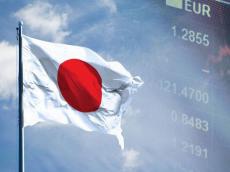|
|
TODAY.AZ / World news
Japan's economy shrink more than expected
16 May 2025 [18:41] - TODAY.AZ

By Alimat Aliyeva
Japan’s economy shrank in the first quarter of 2025 for the first time in a year — and at a faster pace than expected — underscoring the fragile nature of its economic recovery. The contraction comes as global trade tensions escalate, fueled by aggressive tariff policies from U.S. President Donald Trump, Azernews reports.
According to preliminary government data released on Friday, Japan’s real gross domestic product (GDP) fell by an annualized 0.7% in the January–March quarter. This marked a sharper decline than the median market forecast of a 0.2% drop. The unexpected downturn was primarily driven by falling exports and persistently weak private consumption.
Reuters reports that high U.S. tariffs have cast a shadow over Japan’s export-reliant economy — particularly the automotive sector, one of the country’s industrial cornerstones. The 25% tariffs imposed by Washington on cars, steel, and aluminum have hit Japanese manufacturers hard, especially automakers like Toyota and Honda that heavily depend on the U.S. market.
Senior economist Yoshiki Shinke from the Dai-ichi Life Research Institute noted that Japan currently lacks a strong growth engine. "With both exports and consumption weak, the economy remains highly vulnerable to external shocks — especially policy shifts like Trump’s tariffs," he said.
Economic Revitalization Minister Ryosei Akazawa acknowledged that while recent wage hikes by major companies might support a modest recovery, significant risks remain. “The path forward is highly uncertain,” he cautioned, highlighting the potential fallout from deteriorating trade relations.
As part of his broader trade offensive, President Trump has imposed 10% tariffs on most countries — excluding Canada, Mexico, and China — and has threatened Japan with a 24% tariff on automobile exports starting in July unless a new bilateral trade agreement is reached.
These protectionist measures are not only squeezing Japan's export volumes but also complicating the Bank of Japan’s monetary policy decisions. At its policy meeting from April 30 to May 1, the central bank sharply lowered its economic growth forecasts and expressed doubts about whether wage growth alone could sustain household spending and broader economic momentum.
The Japanese yen has seen increased volatility amid these tensions, as investors flock to the currency as a safe haven during global uncertainty — paradoxically putting even more pressure on Japanese exports by making them less competitive abroad. Meanwhile, consumer confidence remains low, with households hesitant to spend despite nominal wage increases.
Looking ahead, economists warn that unless global trade tensions ease and domestic consumption picks up, Japan may face an extended period of economic stagnation reminiscent of its “Lost Decade.”
URL: http://www.today.az/news/regions/259171.html
 Print version
Print version
Connect with us. Get latest news and updates.
See Also
- 05 November 2025 [09:00]
Disney+ hub debuts in Japan via Tving - 05 November 2025 [08:00]
AWS and OpenAI sign AI scaling deal - 04 November 2025 [23:23]
China launches production of flying cars - 04 November 2025 [22:23]
Kia teams up with Motability for accessible vehicle - 04 November 2025 [21:50]
Work hours shortened at multiple German factories - 04 November 2025 [11:38]
Armenia’s parliamentary race gains momentum as speaker Simonyan joins 2026 elections - 04 November 2025 [09:00]
China's manufacturing PMI declines in October - 04 November 2025 [08:00]
Internet exchange points in Turkiye - 03 November 2025 [23:33]
Thousands of websites blocked in Kazakhstan - 03 November 2025 [22:55]
Turkish firm Fergani launches new satellite
Most Popular
 Azerbaijan and Ukraine discuss cooperation in healthcare industry and medicine production
Azerbaijan and Ukraine discuss cooperation in healthcare industry and medicine production
 Cologne holds Second Forum of Azerbaijani Engineers in Europe
Cologne holds Second Forum of Azerbaijani Engineers in Europe
 Iran’s nuclear efforts aimed at meeting national needs, not building weapons — President Pezeshkian
Iran’s nuclear efforts aimed at meeting national needs, not building weapons — President Pezeshkian
 Who stole the data on rare earths in Karabakh?
Who stole the data on rare earths in Karabakh?
 UNEC and BFSU deepen partnership in language and economics
UNEC and BFSU deepen partnership in language and economics
 North Macedonia holds second round of local elections
North Macedonia holds second round of local elections
 Justice Ministry and SMBDA hold meeting with business associations
Justice Ministry and SMBDA hold meeting with business associations
